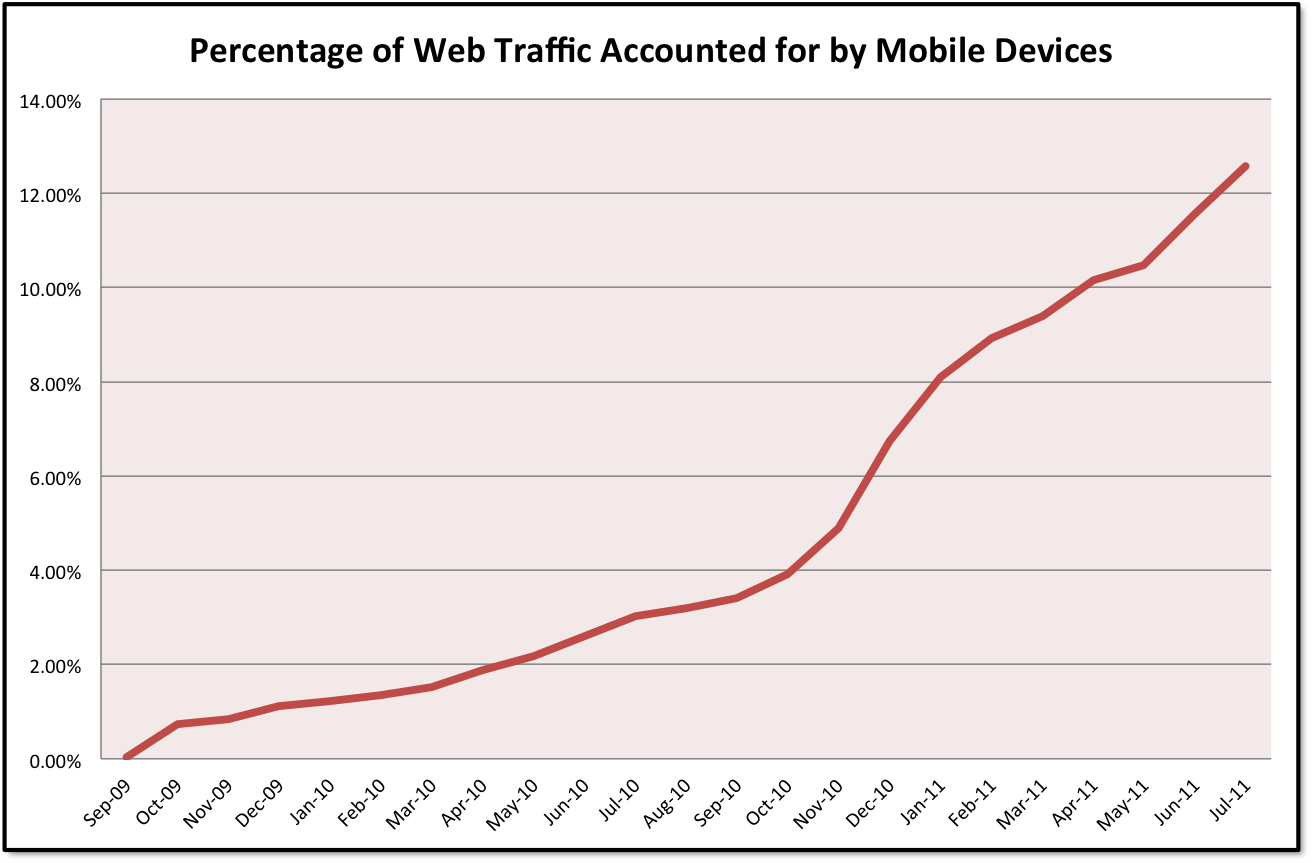Earlier this month, Google announced it was acquiring Motorola Mobile for $12.5 billion. Everyone in the technology world pretty much agrees this was a bold move by Google, but whether it was a sensible decision remains open to debate.
In the world of online search, Google is by far the dominant force, with 92% market share in the UK and 65% in the US.
In the world of mobile operating systems, however, they remain very much overshadowed by Apple. Our own research on UK mobile Internet traffic gives you an idea of the balance of power; 75% of all mobile web traffic in the UK comes from iPhones and iPads, whilst devices running Google’s Android OS currently account for 14.6%.
Google are also competing with Microsoft in both search and mobile, as well as other areas such as Google Docs versus MS Office.
The acquisition of Motorola Mobile, then, is clearly an effort to respond to the challenges presented by rivals like Apple and Microsoft. Google wants to position itself as the undisputed heavyweight of the technology world. But have they just taken a big step forward on that journey, or does this headline-grabbing acquisition represent an uncharacteristic lapse in judgement?
The good
• The acquisition of Motorola will strengthen Google’s patent portfolio, enabling them to “better protect Android from anti-competitive threats from Microsoft, Apple and other companies,” according to Google CEO Larry Page.
• Owning a hardware company may enable Google to unify Android, moving away from its current fragmented state. This would reduce the amount of coding and testing developers have to do, and help to make it a more secure and reliable OS.
The bad
• Some analysts have suggested the value of Motorola’s patents may have been substantially overestimated. The company is already in legal battles with Microsoft and Apple, and this adds additional risk to the Google deal.
• Google has no experience of hardware manufacturing, and now has thousands of people on its payroll who may not fit into the existing corporate culture.
• Google has created a situation where it is competing with its own partners. It is possible that manufacturers currently producing Android handsets, such as HTC and Samsung, could move to another OS if Google’s new hardware division starts undermining their position.
At this stage, we can only speculate on how this move will pan out. When writing a cheque for $12.5 billion, there will always be an element of risk, but this is most likely a gamble that has been carefully calculated by Google. If Android ultimately becomes more stable and more integrated with the hardware it runs on, that will be good news for developers and users alike. Whether that will come at the expense of choice for consumers remains to be seen.





